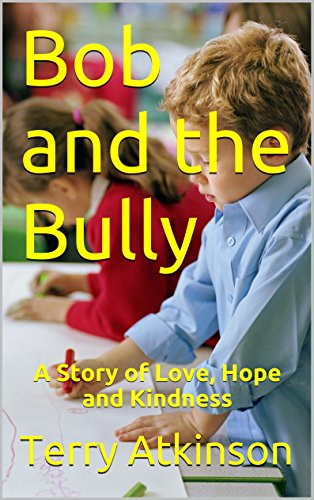What is bullying, and why is ‘being in the know’ about this topic so important?
We know that you’ve all heard of it and have probably experienced it during some time of your life. You may even be rolling your eyes at another ‘anti-bullying’ textbook style lecture, but before you yawn and click exit, know that this is a sensitive topic – and not something we’re going to play around with! Knowing what constitutes as respectful behaviour, positive and clear boundaries and knowing what problematic behaviour is are keys to being a functional member of society. Heck! Who wants to live in a dysfunctional and harsh world? Not me, that’s for sure. And I’m sure you don’t want to either!
You are always going to come across people that you just don’t quite gel with, but that is a big part of life and growing up. However, have you ever begun to fear being near another? Have you felt belittled, been teased and wished that you had the strength to stand up for yourself, or another? If this is the case, there is no other way to put it – you’re being bullied!
Bullying is behaviour that is aimed at intentionally harming a person. Bullying is a result of an inequal power balance. To rectify this power imbalance, you will need to go to someone in a higher position than you, a prefect, an adult, or someone you trust.
There is a misconception that “telling on” makes you weak, but this is NOT THE CASE. Hurting another makes you weak! Reporting a bully should not only put an end to your suffering, but to other potential targets. You may even be helping the bully too, by bringing to attention his/her behaviour. Happy people don’t aim to make other people unhappy. The bully is acting out because of their own issues and you are a target for their frustration. This does not make their behaviour okay, but it does bring to light the fact that by putting an end to bullying, you help yourself, other potential targets and the bully in the long run too! That’s pretty awesome.
But in order to deal with a bully, you need to KNOW YOUR FACTS:
Emotional bullying can involve having people spread rumours about you. A rumour is something that is not true, and that information being spread can harm an individual’s reputation. Gossiping and sharing of rumours can seriously damage one’s self-esteem! Next time you hear gossip, or are asked about information you don’t have any business knowing or sharing…imagine how you would feel should someone say that about you – and worst of all, you were not there to defend yourself! It’s not rocket science – but that is just not fair.
Emotional bullying can be subtler than just calling one names (which we know is a big no, no!). Emotional bullying can also involve manipulation, or being indirect with your intentions. Manipulation means to take unfair of advantage of someone else…or to have someone take advantage of you. They may guilt you into doing favours for you. It can also involve having someone subtly turn people against you, but this can fall into social bullying too.
Social bullying can be something like social exclusion, with the intention of specifically hurting someone. A prevalent example of social bullying is cyber-bullying, where one is abusive through social media or text. Please remember that everything that is said can be saved and used as evidence. Block the individual and if the bullying continues, report the bully.
Physical bullying is a no-brainer and an absolute no no. People can be charged with assault for hurting you, and most schools have very strict repercussions for bullies. Bullying in any shape or form should not be tolerated. So if you are witness to someone being bullied and you are in a position to help them, please do. If you are the victim of bullying, deal with it ASAP and if you are a bully, contemplate why you mistreat people – and where you learned that behaviour. Remember that your bad behaviour does not make you a bad person and there is always the option to change.
It is your RIGHT to exist in an environment that is conducive to your feelings of safety. It is your RIGHT to exist free from harm – emotional and physical and should you be the victim of bullying, know that you have the power to speak up and deal with appropriately.
Tell someone you trust. If they do not believe or support you, do not be disheartened. Continue seeking assistance, be it from a teacher, coach or any trusted adult.
If you are afraid for your safety, tell an adult immediately. Alternatively, contact Childline on 08000 55 555 (South Africa only). Childline offers free counseling and help.
Suggested Reading:
 Bob and the Bully: A Story of Love, Hope and Kindness
Bob and the Bully: A Story of Love, Hope and KindnessKindle Edition
https://actagainstbullying.org/success-stories/
https://actagainstbullying.org/for-under-18s/
https://pacerteensagainstbullying.org/advocacy-for-others/real-teens-speak-out/
http://www.drugrehab.com/guides/bullying/

